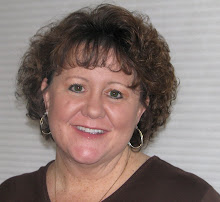For a city that sits on one of the largest lakes in North America, no one would ever suspect there is a problem with adequate water supply. But looks are deceiving. The reality is that there is a problem in the city of Sandpoint – and it has the potential to be a 5-million-gallon-a-day problem.
Last Tuesday, Sandpoint residents approved the issuance of a bond to expand the Lake Pend Oreille Water Treatment Facility, which currently has a capacity of 3.5 million gallons per day.
“Our peak days in late summer are over 5 million gallons per day,” said Kody Van Dyk, Sandpoint’s Public Works Director. “We have been fortunate that the Little Sand Creek snow pack has been good the past two years because that source has been enough to supplement the lake plant source.”
City officials have forecasted that if growth continues in Sandpoint as it has over the last several years, the demand for water will exceed the supply by approximately 5 million gallons each day.
Prior to a community forum on Oct. 28 which featured the candidates for city council, Van Dyk addressed the crowd about the bond. There was much talk about the bond and how conservation may be a better alternative.
But the discussion did not stop there. Each candidate was given an opportunity to speak about his or her position regarding the proposed bond.
City Councilman Michael Boge spoke to the crowd and said he was against the bond and that he has not watered his lawn in the 15 years he has lived in Sandpoint. Conservation during the two summer months when water usage is at its peak is what he proposed as a more sensible solution.
Helen Newton, who ran as an incumbent but lost in last week’s election, stated that as an elected official she should not disclose her position. “My vote is as private as yours,” she told the crowd.
But on Tuesday, the voters did not keep their voices or opinions private. They voted 763 to 367 in favor of the water bond.
According to the city, the cost of the expansion will be approximately $17 million. However, the city will receive a $5.1 million grant from USDA Rural Development, stimulus money that would not be available to the city in the future if the bond had failed.
Many initially opposed the bond because of the projected $17 million cost. However, when you break it down Van Dyk said the cost to each household will be as little as 20 cents per day or $6 per month.
The improvements that will take place do not just include expansion of the existing plant; it also includes replacing the existing sand filters with membrane technology which provides a physical barrier between the water and existing pathogens, viruses and pharmaceuticals.
“The membrane technology is a consistent, positive barrier between whatever is in the lake water and the consumers,” said Van Dyk. “The current system is good and provides great water. The problem is that the lake plant’s current technology is incapable of consistently filtering out all contaminants.”
Van Dyk said the plan is for the first phase of the upgrade and reconstruction to increase the capacity of the plant system to 10 million gallons per day and to size pumps and pipes for an eventual capacity of 17 million gallons per day.
If the bond had not passed, the City Council was prepared to discuss the possibility of still approving the expansion and financing it through rate hikes that could have cost residents as much as $16 per month. Van Dyk echoed that sentiment stating that if the bond were to fail, the city would still have needed to upgrade the existing facilities to replace worn-out components, replace inefficient motors and insulate the buildings.
Growth has been consistent in Sandpoint and if voters had cast their ballots against the water bond, they still would have ended up paying more whether it was through financing improvements through rate hikes or a bond in the future when construction costs would have been higher and the grant money would not have been available. Growth is inevitable. Planning for the future in the most economical way is the responsible way to address the growth. The community of Sandpoint should be commended for doing its research and voting to expand and improve its existing facility.
Winners of the three four-year city council seats were Marsha Ogilvie, Jamie Davis and Justin Schuck. Incumbent by appointment, John O’Hara, lost by four votes and incumbents Michael Boge and Helen Newton also were defeated. John Reuter ran uncontested for a two-year seat on Sandpoint’s City Council.
Subscribe to:
Post Comments (Atom)

No comments:
Post a Comment